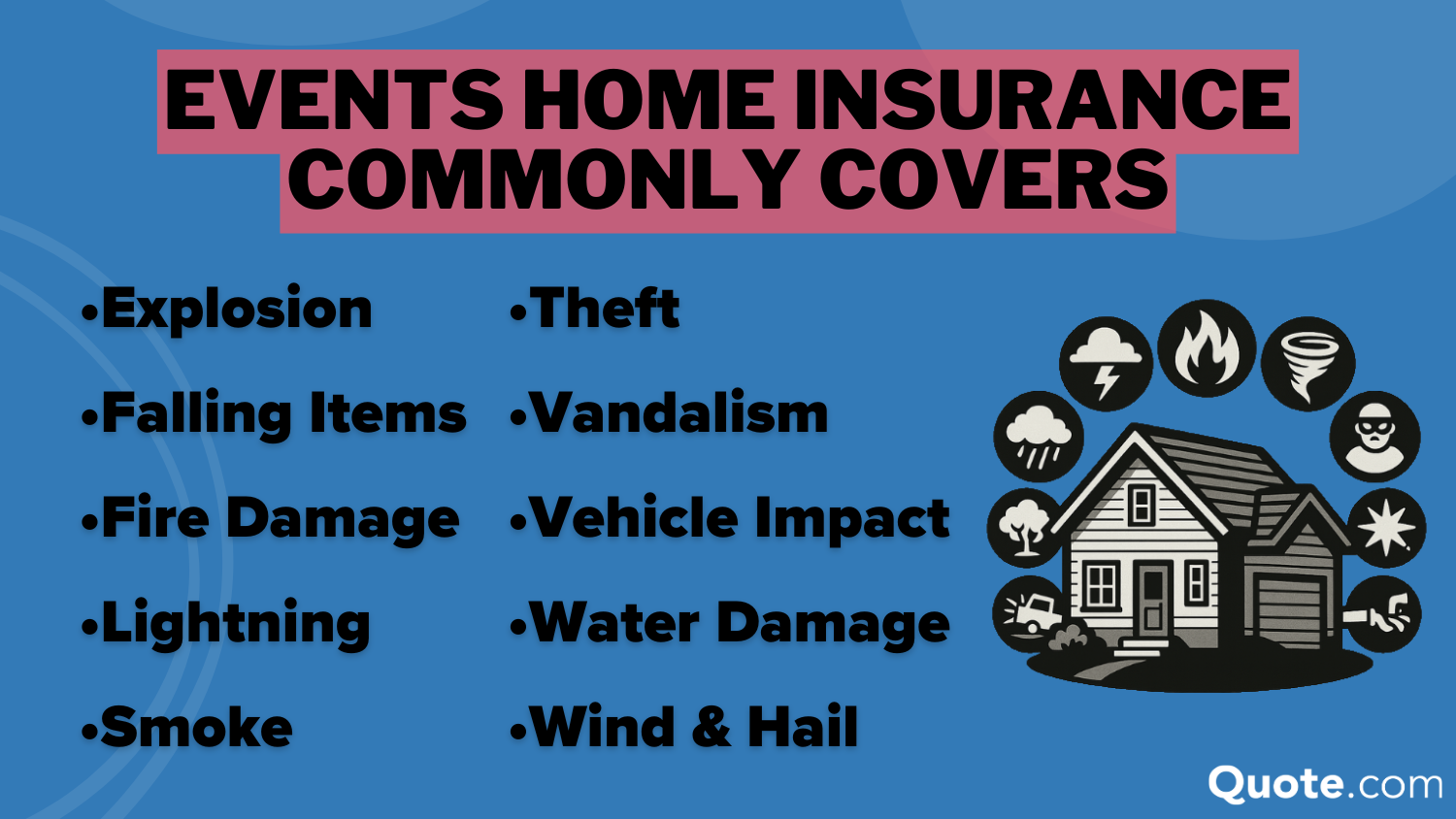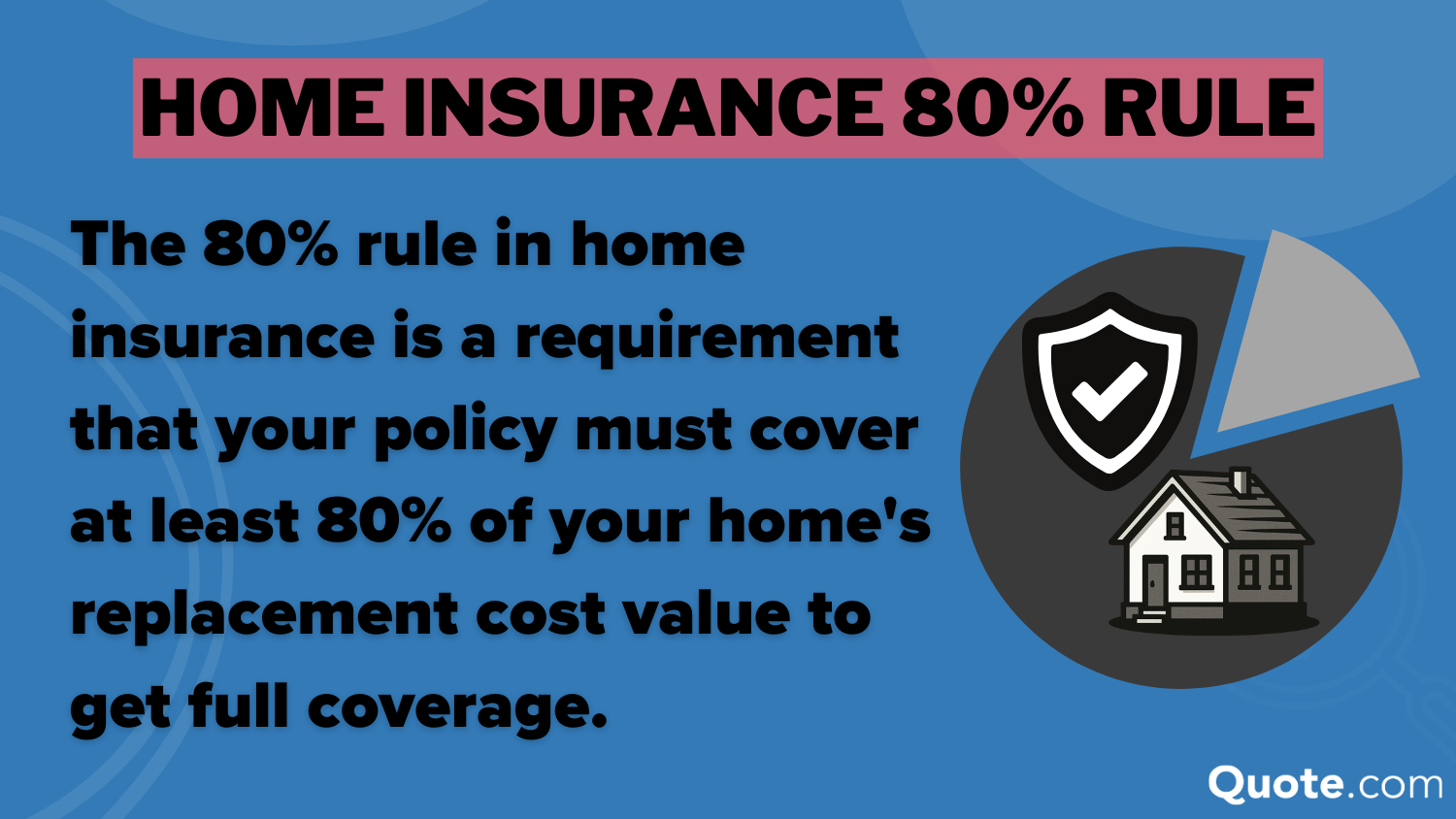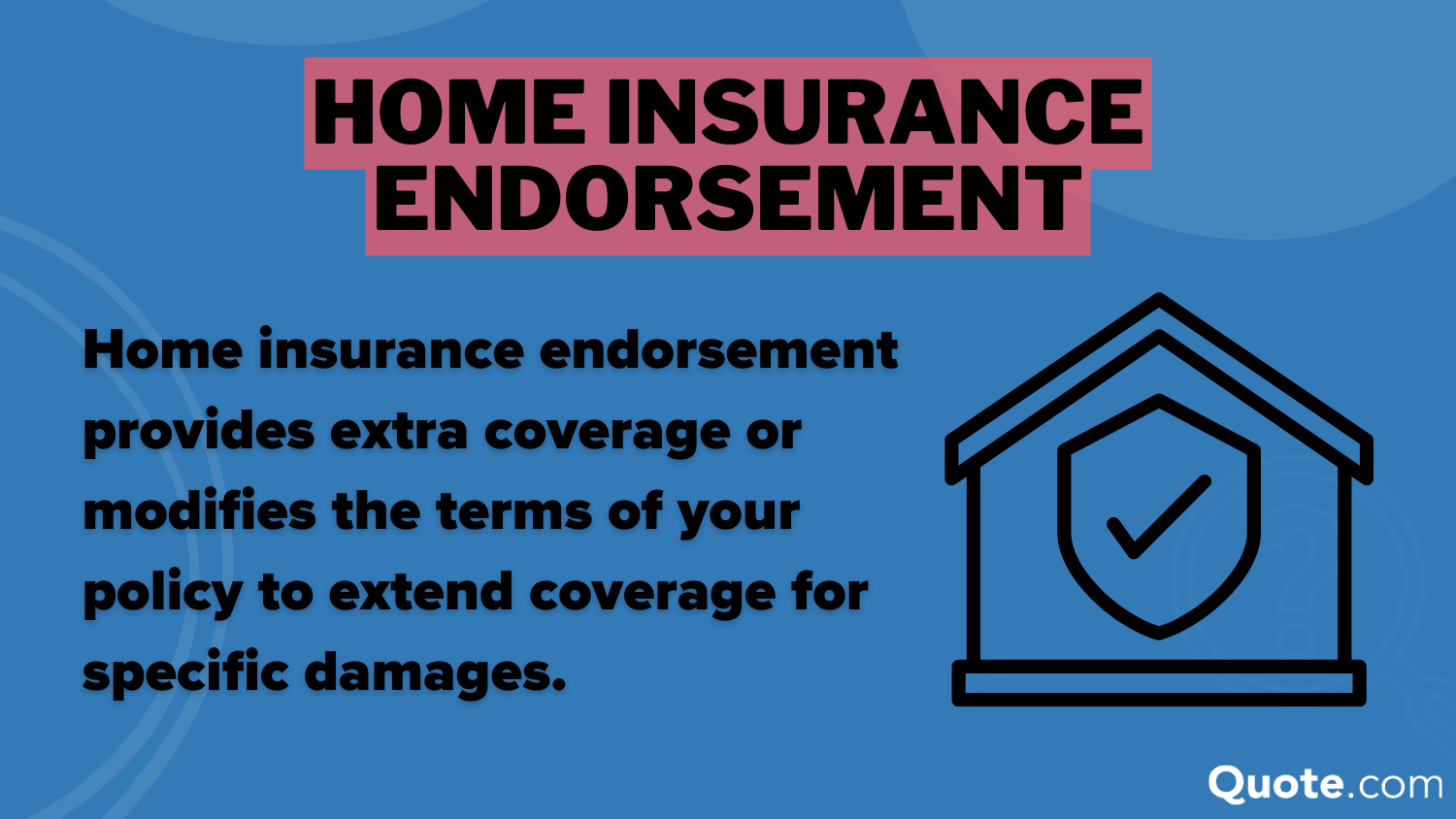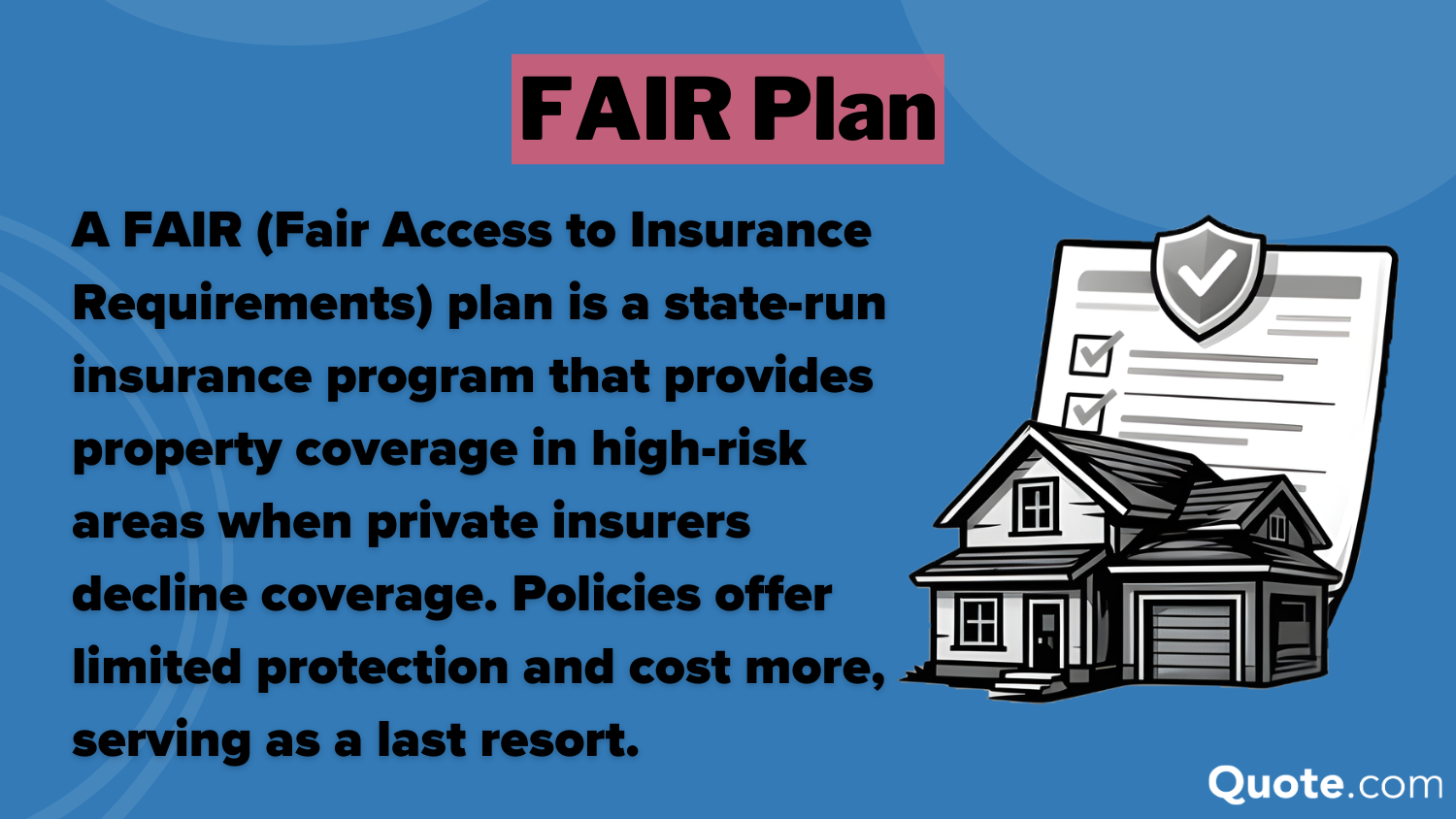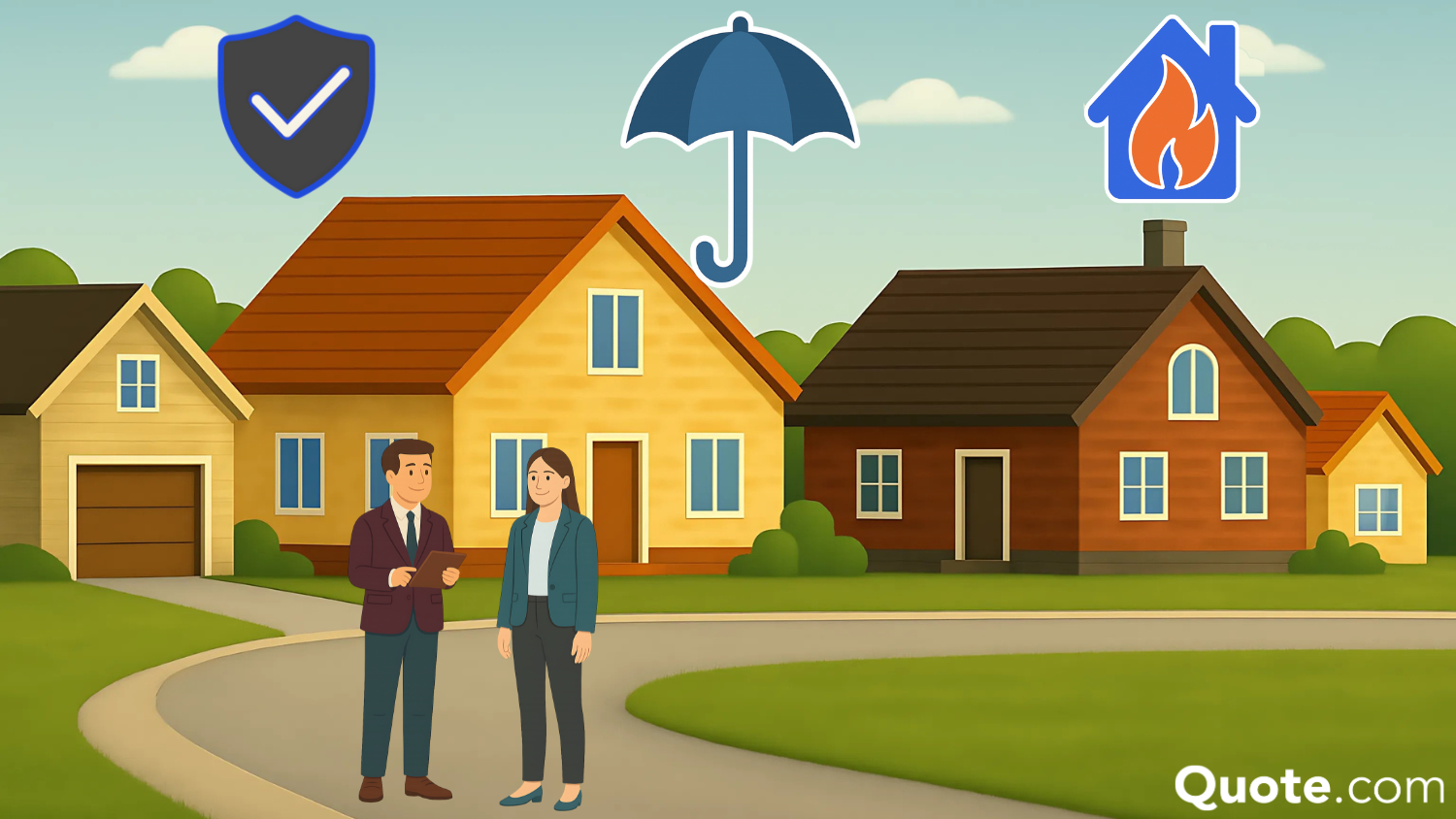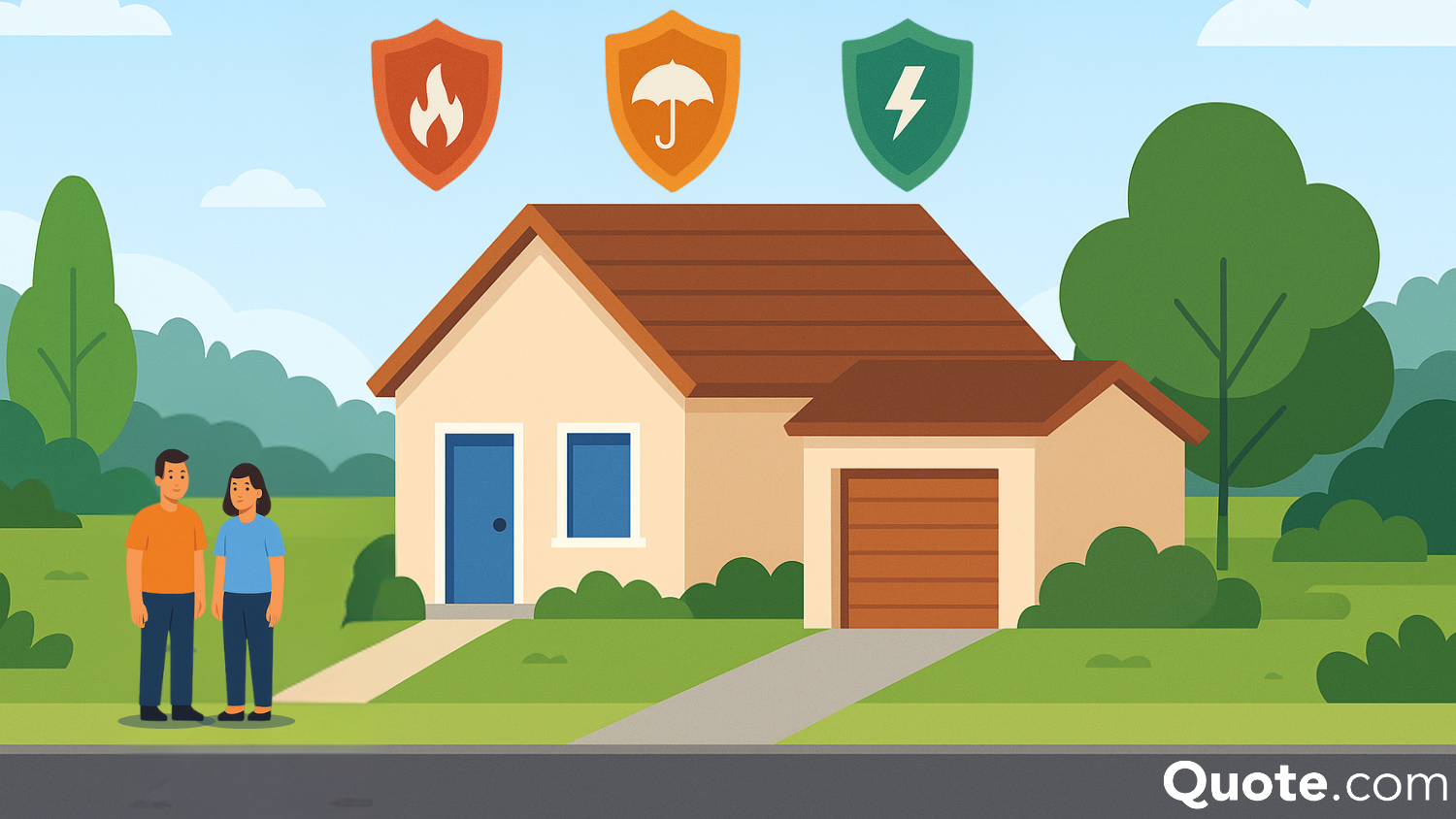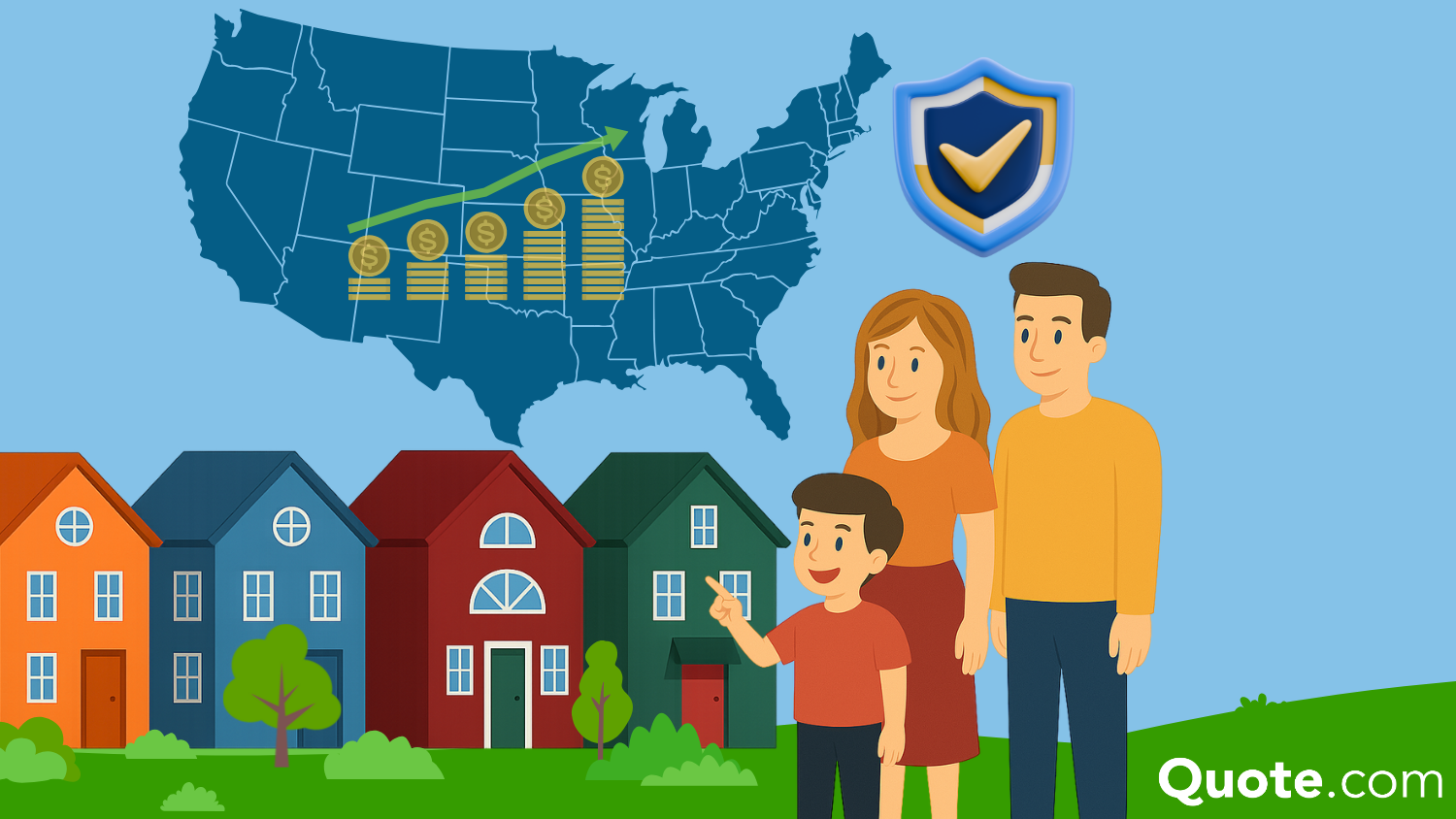Does home insurance cover wildfires? (2026)
Home insurance generally covers wildfire damage unless it’s excluded from the policy. A $200,000 wildfire insurance policy starts at $70 a month, though rates may be higher in high-risk states like California. FAIR plans offer basic home insurance for wildfire areas when private insurance isn’t available.
Read more Secured with SHA-256 Encryption




Table of Contents
Table of Contents


Published Insurance Expert
Melanie Musson, a published insurance expert, is the fourth generation in her family to work in the insurance industry. Over the past two decades, she has gained in-depth knowledge of state-specific insurance laws and how insurance fits into every person’s life, from budgets to coverage levels. She specializes in autonomous technology, real estate, home security, consumer analyses, investing, di...
Melanie Musson


Senior Director of Content
Sara Routhier, Senior Director of Content, has professional experience as an educator, SEO specialist, and content marketer. She has over 10 years of experience in the insurance industry. As a researcher, data nerd, writer, and editor, she strives to curate educational, enlightening articles that provide you with the must-know facts and best-kept secrets within the overwhelming world of insurance....
Sara Routhier


Licensed Insurance Agent
Travis Thompson has been a licensed insurance agent for nearly five years. After obtaining his life and health insurance licenses, he began working for Symmetry Financial Group as a State Licensed Field Underwriter. In this position, he learned the coverage options and limits surrounding mortgage protection. He advised clients on the coverage needed to protect them in the event of a death, critica...
Travis Thompson
Updated January 2026
Usually, home insurance does cover wildfires, with rates starting at $70 a month, but some insurance companies may exclude coverage for homes in high-risk wildfire areas.
- Home insurance usually covers wildfires unless it’s an excluded peril
- Some insurers require wildfire coverage to be added as a separate rider
- Wildfire insurance can be expensive in states with high wildfire risk
Fires are one of the seven major threats facing U.S. homeowners, so it’s important to check your home insurance policy to ensure you have wildfire insurance. You may also want to adjust coverage amounts for better protection.
Read on to learn more about wildfire insurance coverage and your home insurance policy. If you don’t have coverage for wildfires, our free quote tool can help you find the best fire insurance in your area.
Wildfire Coverage in Home Insurance Policies
Does homeowners insurance cover wildfire damage? Most standard home insurance policies do cover damage and losses caused by a wildfire.
For example, dwelling coverage helps pay to rebuild your home if it’s damaged or destroyed by a wildfire. Coverage depends on whether wildfires are listed as an excluded peril on your specific policy. Related: How to File a Home Insurance Claim After a Wildfire
Most home insurance policies provide coverage for several types of wildfire damage, including smoke damage, ash and soot contamination, and water damage caused by firefighting activities, even when the home isn’t directly burned.
Depending on the policy, home insurance coverage may still apply if a nearby wildfire causes damage or requires you to evacuate, even if your home isn’t directly burned.
Home Insurance Coverage for Wildfire Damage| Coverage | What it Covers |
|---|---|
| Dwelling | Repair or replacement of your home |
| Loss of Use | Temporary living costs during repairs |
| Other Structures | Detached structures like sheds or fences |
| Personal Liability | Legal and medical costs for injuries |
| Personal Property | Furniture, electronics, clothing, and other items |
Personal property coverage helps replace belongings like furniture, clothing, and electronics that are lost in a fire.
Personal liability may cover wildfire damage if you’re liable for an accidental fire. Coverage applies if the fire spreads and damages someone else’s property or causes injury to others. It does not cover damage to your own home and only applies to claims made by others.
Your home insurance policy will cover wildfire damage as long as wildfire isn’t listed as an excluded peril. It’s important to confirm whether wildfires are covered by home insurance with your insurance company.
If wildfires are listed as an excluded peril, your home insurance policy won’t pay for any wildfire-related damage or losses.
You can find out if wildfire is an excluded peril by reviewing your declaration page or contacting your home insurance company directly.
Kristine Lee Licensed Insurance Agent
Home insurance isn’t required in high-risk areas, but it’s still important to review your policy so you understand what coverage you have.
If your current policy doesn’t offer an add-on for home insurance wildfire coverage, you may want to compare home insurance companies to find better wildfire insurance options.
In areas with a high wildfire risk, your home insurance policy may include a separate wildfire deductible, which is the amount you’re responsible for paying out of pocket each time you file a wildfire-related claim.
A wildfire deductible may be a flat dollar amount or a percentage of your home’s insured value, often ranging from 1% to 5%, and it’s usually higher than a standard home insurance deductible.
Compare Homeowners Insurance Rates by Dwelling Coverage
Home insurance premiums are closely tied to your dwelling coverage amount, since higher coverage limits increase the insurer’s potential payout.
Comparing home insurance rates by dwelling coverage helps show how premiums change as coverage levels go up.
Home Insurance Monthly Rates by Coverage Amount| Company | $200K | $300K | $500K | $1M |
|---|---|---|---|---|
| $85 | $120 | $180 | $320 | |
| $81 | $115 | $175 | $310 | |
| $90 | $130 | $190 | $330 | |
| $75 | $110 | $170 | $300 | |
 | $95 | $135 | $195 | $340 |
 | $82 | $118 | $178 | $315 |
| $88 | $125 | $185 | $325 | |
| $80 | $115 | $175 | $310 | |
| $86 | $122 | $182 | $322 | |
| $70 | $105 | $165 | $290 |
As dwelling coverage increases, average home insurance rates usually rise to reflect the higher cost to rebuild or repair the home.
Looking at these differences can help you choose enough protection while keeping your premium within budget.
We recommend following the 80% rule when choosing a dwelling coverage amount in high wildfire risk areas. The 80% rule means your dwelling coverage should equal at least 80% of your home’s replacement cost to avoid coverage gaps.
Reviewing your dwelling limits, personal property coverage, and loss of use coverage regularly can help ensure your home insurance keeps up with rising rebuilding costs in wildfire-prone areas.
How Insurance Premiums Vary by Location
If you live in a state where it’s difficult to find home insurance due to wildfire risk, check whether your state offers a FAIR plan.
Comparing home insurance quotes regularly can help you find better wildfire coverage and manage rising premiums in high-risk states. To get an idea of how much home insurance costs, take a look at the average cost of home insurance across the U.S.
FAIR plan coverage offers basic insurance for high-risk homes when homeowners can’t get coverage through traditional insurers, often a last-resort option in wildfire-prone areas. Selecting the right home insurance coverage for wildfires can help protect your finances if a fire damages or destroys your home.
In high-risk states, adjusting your home insurance fire coverage, such as increasing dwelling limits or reviewing your deductible, can provide stronger financial support after a wildfire.
Free Home Insurance Comparison
Compare Quotes From Top Companies and Save
Secured with SHA-256 Encryption
When Home Insurance Won’t Cover Wildfires
There may be several instances when your home insurance won’t cover wildfire damage to your home from forest fires. They include:
- Policy Exemptions: Wildfires are listed as an exemption on your home insurance policy.
- Low Coverage: If you don’t have enough coverage, not all of your damages will be covered. Make sure to accurately value your home, including modifications and outdoor features. Read More: The 5 Outdoor Features That Add Value To Your Home
- Negligence: If the wildfire started in your own backyard due to negligence, the claim may be denied.
Make sure to verify when you buy a home insurance policy that it covers wildfires.
What to Do if Wildfires Are an Excluded Peril
If your home insurance lists wildfires as an excluded peril, you can see if they offer high-wildfire-risk homeowners insurance as an add-on coverage or endorsement. A home insurance endorsement will modify your coverage to make sure wildfires are included.
Wildfire insurance as an add-on is common in states like California, where wildfires are frequent, as wildfires cause billions of dollars of loss in these states.
Dwelling coverage costs will depend on the size of your home and location, as well as the risk of wildfire in your state. Read More: Cheapest Homeowners Insurance Companies
For example, fire insurance in Washington State or California may be harder to find as you are shopping for home insurance in high fire-risk areas. If you have trouble getting wildfire insurance after a fire, your state insurance department can help you find policies that cover wildfires.
How to Get Home Insurance in Wildfire Zones
Getting home insurance in wildfire zones can be difficult and costly, but affordable coverage is still available.
Start by requesting quotes from multiple insurance companies. The best insurance comparison sites, like Quote.com, let you compare options from several insurers at once to find the lowest price. Just enter your ZIP code to get your free quote now.
In some cases, homeowners combine policies to get enough coverage. For example, a basic fire policy may be paired with a separate homeowners policy to fill coverage gaps.
Michelle Robbins Licensed Insurance Agent
Some insurers still offer coverage in wildfire zones, especially when a home meets certain safety standards. An independent insurance agent can help by comparing policies from multiple carriers at once.
Insurance companies look closely at how well your home is protected from wildfire damage. You’re more likely to qualify for homeowners insurance coverage if you’ve taken risk-reduction measures like:
- Removing brush, dry plants, and debris from your property
- Maintaining defensible space between your home and nearby vegetation
- Using fire-resistant roofing, siding, or decking materials
- Installing ember-resistant vents and upgraded windows
Sharing photos or records of these improvements can help demonstrate lower risk and increase your chances of approval.
If full coverage isn’t an option, some insurers may still offer a policy with higher deductibles or reduced wildfire protection. Be sure to review coverage limits closely so you understand what types of damage would and wouldn’t be covered after a wildfire.
When private insurance isn’t an option, many states offer last-resort or state-backed insurance plans, often called FAIR Plans, for high-risk homes. These policies typically meet mortgage requirements and provide basic fire coverage, but they can cost more and offer fewer protections than standard home insurance.
Finally, review your policy every year. Wildfire risk, insurance availability, and rebuilding costs can change quickly. An annual review helps make sure your coverage still fits your home and budget.
Free Home Insurance Comparison
Compare Quotes From Top Companies and Save
Secured with SHA-256 Encryption
3 Steps to File a Claim After Wildfire Damage
If a wildfire damaged your home and you have the right coverage, there are three steps to follow when filing a fire claim.
Step #1: Contact Your Insurer
The first step in how to file a home insurance claim after a wildfire is to contact your home insurance company. A representative will help guide you through all the steps of the claim, from submitting evidence of damages to calculating damage costs.
Your insurance company will likely send out a home insurance adjuster to inspect the property and damages.
Once you finalize and submit your claim, you will receive a settlement offer from the home insurance adjuster. Provide evidence of damages from the wildfire and keep a record of all receipts and communications.
Step #2: Review the Settlement Offer
Once you’ve received an offer from your home insurance company, review it carefully before accepting. If you think the settlement is too low, you can file an appeal with your evidence.
However, bear in mind that if your coverage is low, you’ll only receive the maximum payout for the coverage you purchased. So if you didn’t purchase enough coverage to cover the cost of your new walk-in tub, you won’t receive extra compensation for it.
Step #3: Resolve the Claim
If you’re happy with the forest fire insurance payout, you can accept the settlement and close the claim. Your insurance company will likely require you to sign a document to finalize the process, after which your claim will be processed and filed away.
Keep in mind that you may have higher home insurance rates after a claim, as your area may be deemed a higher risk after a wildfire.
Related: How to Estimate Home Insurance Costs Based on Where You Live
Rising Wildfire Damage Costs in the U.S.
Wildfire damage costs have climbed significantly in recent years, making wildfires one of the most expensive natural disasters for insurers and homeowners. In some years, insured wildfire losses have reached tens of billions of dollars across the U.S.
Compare home insurance rates by state to see if these risks affect your premiums.
As claims increase, insurers often raise premiums, increase deductibles, tighten coverage limits, or reduce coverage options in high-risk wildfire areas.
Higher wildfire damage costs also mean higher rebuilding expenses. If your dwelling coverage hasn’t been updated to reflect current construction and labor costs, it may not be enough to fully rebuild your home after a wildfire.
Wildfire Protection Tips for Your Home
While wildfire damage is sometimes inevitable, there are some things you can do to minimize the risk of fire damage to your home.
- Clear Vegetation Around Home: Keep the vegetation within a 30-foot radius around your home to a minimum, and regularly trim and cut back any overgrown vegetation.
- Keep Combustibles Away: Ensure any combustible items, such as grills, are at least 15 feet from your home.
- Get Fireproof Siding: You can get fire-resistant siding on your home and treat windows to minimize combustibility.
The more steps you take to protect your home from wildfires, the lower the chances of severe fire damage, especially in the case of small, containable wildfires.
Home insurance adjusters who price your home coverage may also offer a lower rate if they see prudent steps taken against wildfires.
Read More: What We Learned Analyzing 815 Insurance Companies
Free Home Insurance Comparison
Compare Quotes From Top Companies and Save
Secured with SHA-256 Encryption
Shopping for the Best Wildfire Home Insurance
The best homeowners insurance companies typically include wildfire risk insurance coverage, with standard protections like dwelling and personal property coverage helping pay to rebuild your home and replace your belongings after a fire.
That said, wildfire damage may still be listed as an excluded peril on some policies. If this happens, ask whether you can add wildfire coverage to your existing home insurance policy.
In high-risk wildfire areas, such as parts of California, some insurance companies may not offer this option at all. In that case, you’ll need to compare home insurance quotes to find coverage for wildfire and forest fire risks.
If your current insurer can’t provide wildfire coverage, consider shopping with specialty insurers or working with an independent insurance agent who can help you find alternative options.
If you need home insurance in a wildfire area, you can compare quotes for forest fire home insurance coverage today by entering your ZIP code into our free tool.
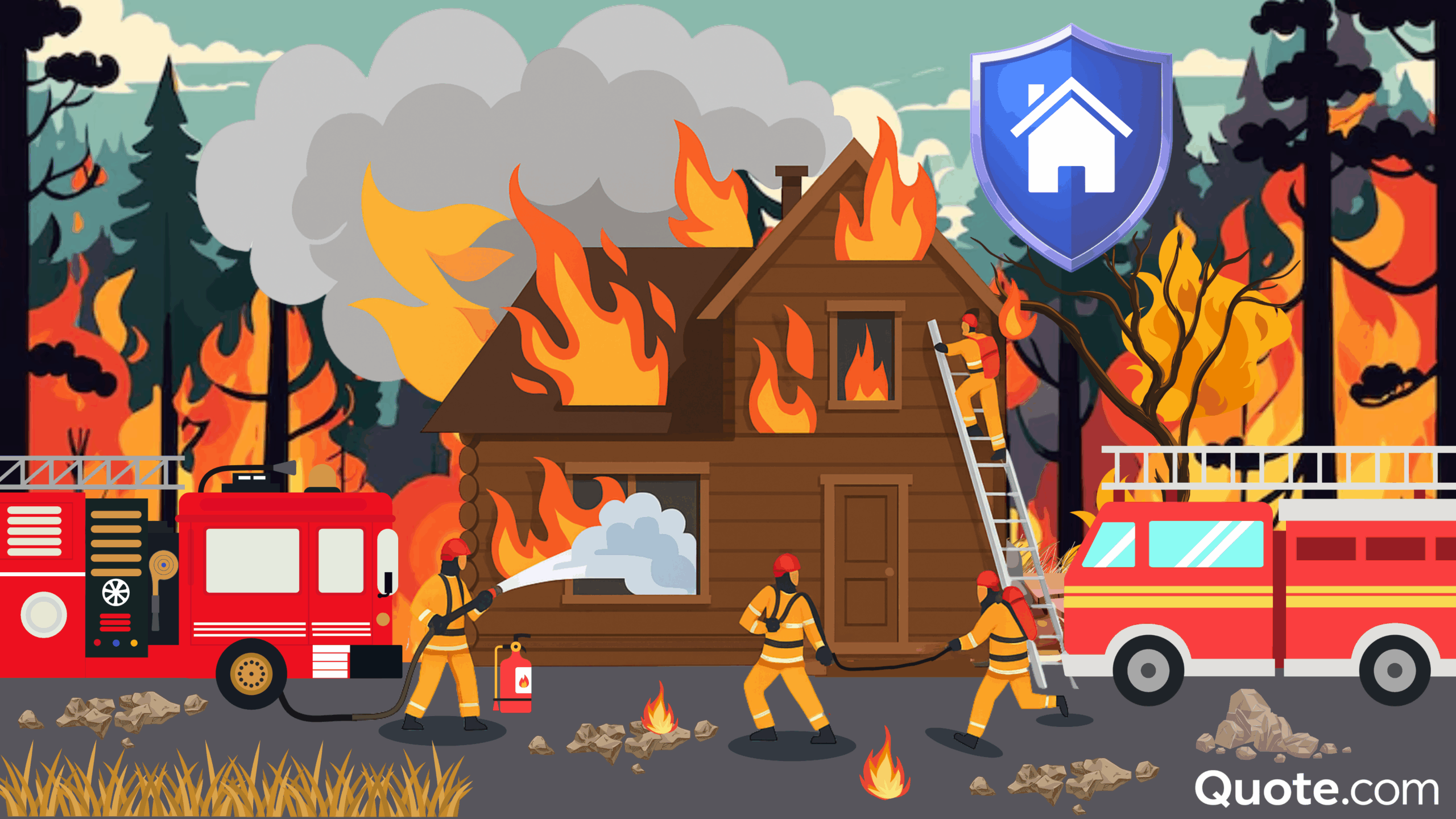
Frequently Asked Questions
Are wildfires covered by homeowners insurance?
You may be asking, “Does home insurance cover forest fires?” Yes, wildfire damages and losses are included in most standard home insurance policies unless listed as an excluded peril on your policy. Basic coverages like dwelling, personal property, and additional living expenses will cover the cost of losses and damages.
Does homeowners insurance cover natural disasters?
Home insurance will cover most natural disasters unless they are listed as excluded perils. This is common in high-risk areas. For example, flooding may be excluded in areas that frequently flood unless you purchase extra flood insurance.
Which type of fire is typically not covered by insurance?
Fires caused by arson that you intentionally commit are typically not covered by homeowners insurance. Most policies cover accidental fires and fires caused by natural events, but they exclude intentional acts and insurance fraud.
Can you be denied fire insurance?
Yes, you may be denied fire insurance if you are shopping for wildfire insurance in Arizona, California, or other high-risk areas. You may have to compare homeowners insurance quotes from several companies before you find one willing to insure you with home insurance for wildfires.
Enter your ZIP code to get a free wildfire insurance quote and find the best property insurance for wildfire zones today.
What are common reasons wildfire claims get denied?
Wildfire claims can be denied when the cause of the fire isn’t covered, policy rules weren’t followed, premiums weren’t current, or the insurer finds issues with the claim details.
What is a wildfire deductible?
A wildfire deductible is simply the home insurance deductible you have to pay on a covered home insurance claim.
Does homeowners insurance cover wildfires in California?
You may have trouble finding wildfire insurance in California. In most cases, you will have to pay extra to add fire insurance to your California policy, whether buying home or auto insurance.
How much does insurance pay if a house burns down?
If the fire is covered, insurance will pay up to your policy limits for the loss.
Do you still have to pay your mortgage if your house burns down?
Yes, you must still pay your mortgage even if your home burns down.
What happens if your house burns down in a wildfire?
If your home burns down in a wildfire, you will need to contact your home insurance company to file a claim. Insurance will cover wildfire as long as you have the right type of homeowners insurance for wildfires.
What isn’t covered by homeowners insurance?
What’s the difference between fire insurance and homeowners insurance?
How much does wildfire insurance cost?
Does renters insurance cover wildfires?
Does condo insurance cover wildfires?
What should you never do during a wildfire?
Does home insurance cover earthquakes?
Get a FREE Quote in Minutes
Insurance rates change constantly — we help you stay ahead by making it easy to compare top options and save.
